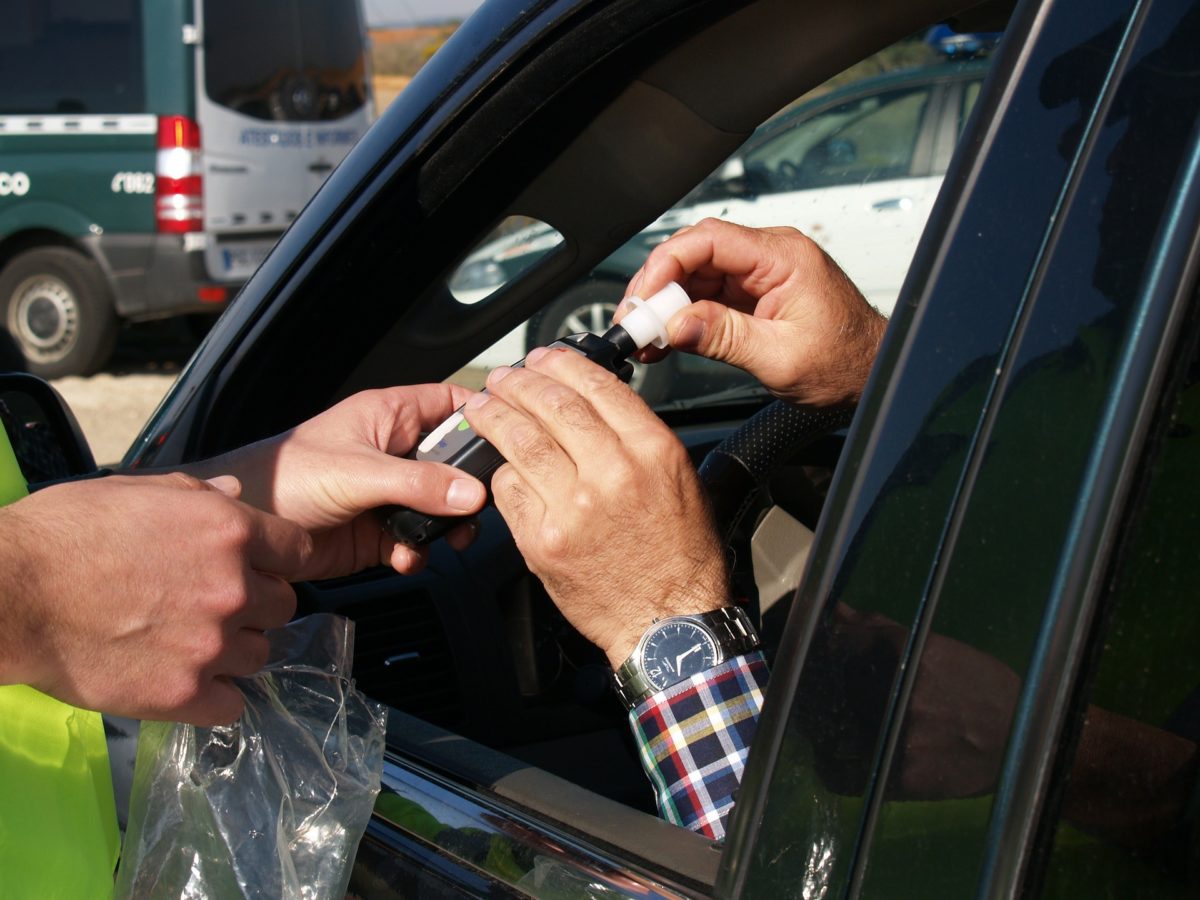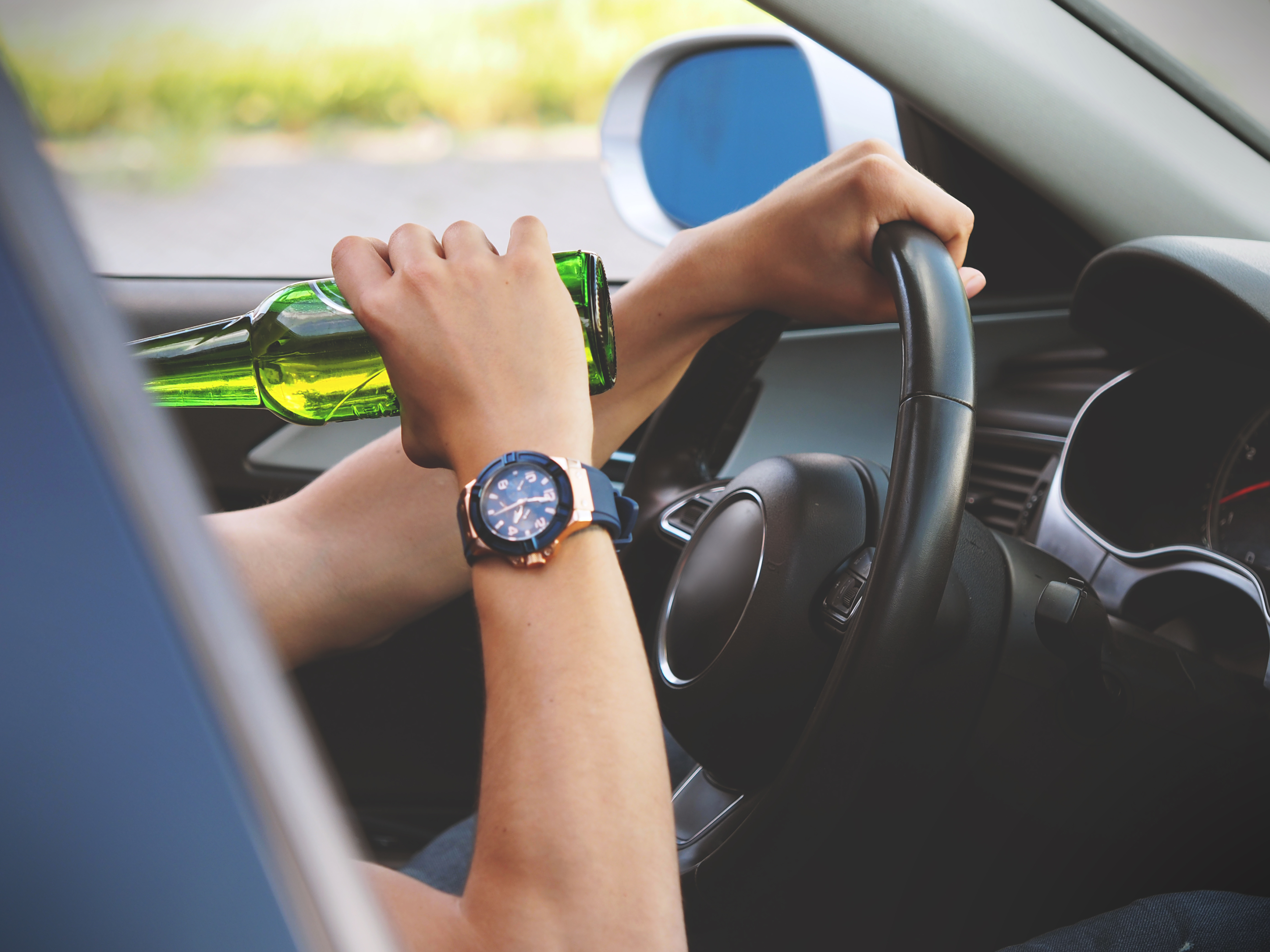
01 Dec The Problem With Drunk Driving in Georgia
Table of Content
The vast majority of adults in America consume alcohol on a weekly, if not daily basis and the people of Georgia are no different from their fellow statesmen. Now, the rates and the quantities may vary, but it is safe to say that it is a staple of Georgian life. We use alcohol to celebrate, to commiserate, to socialize, to blow off steam, to relax, and a variety of other social reasons. While it obviously serves a purpose and can be a great thing if consumed wisely and in moderation, however, drinking, especially binge drinking, can lead to some very negative things.
Aside from the obvious and far reaching consequences heavy drinking can have on one’s health, something that may go overlooked is the impairment of alcohol on decision making. This relaxing of inhibitions is one of the reasons alcohol is so popular, especially in a social setting. It can give you confidence (read as overconfidence for most), a liquid courage, that emboldens your brain to ignore its insecurities, to go speak to the attractive person across the bar, or get up and sing karaoke, badly. On the flip side, it will also bring out some bad in you, to cheat, to lie, to steal, to fight and to drive when you really should not be driving.
While the average rate of drinking has been trending down overall in Georgia, alcoholism and drunk driving remain huge issues that in people in Georgia are faced with and requires addressing. An estimated 15% of Georgian’s binge drink on a weekly basis, putting them as the twelfth highest percentage amongst states. There have been at least 300 deaths per year within the state that have been credited to impaired driving with over 19,000 DUI arrests last year alone. Last year, the state reported that approximately one in three auto related deaths that year were alcohol related. As Georgians, it is important we understand the dangers of drunk driving, the penalties and what is being done to combat it as well as how you can get involved.
How Alcohol Impairs Driving
Alcohol acts as a depressant on the central nervous system, slowing down their functions. As a result of this, brain activity is significantly hindered. This slackening of the brain’s neural firings negatively impact a person’s cognitive and psychomotor skills, which in turn hampers their hand-eye coordination and ability to process information. Even one drink can encumber a driver’s attentiveness, reflexes, coordination, visual perception and comprehension and these skills further deteriorate with each additional drink. While it may only slow you a split second, the inherent nature of cars and the speeds at which they travel require drivers to be able to react at a moment’s notice. Often times, we are only a hair’s breadth from disaster and the only thing keeping the driver from either continuing onto their destination or dying in a fiery crash is that split second.
Blood alcohol content (BAC) is what police and medical professionals use to measure the amount of alcohol within your system. A driver in the state of Georgia is considered alcohol-impaired by law if their blood alcohol has a concentration of .08% or up. Even driving at the legal level, a driver is 10 times more likely than a non-drinker to be in a car crash. One of the issues with picking a legal limit is that it might convey the message that you are not “really drunk” yet, and so it is completely fine to drive. However, impairment starts to set in after one drink, especially if you are small, skinny, or have a weak metabolism. Once you cross the legal limit however, there is an exponential correlation between BAC level and accidents the further you go from the legal threshold.
BAC and Driving
While height, weight and gender result in different effects of alcohol on driving, generally speaking, the average Georgian would experience something akin to these following descriptions at whatever blood alcohol content level they find themselves.
.02% BAC, 2 drinks
- Effects on body – moderate loss of judgment, changed mood, relaxation of muscles.
- Effects on driving – Rapid tracking of moving targets declines, loss of focus and difficulty multitasking.
.05% BAC, 3 drinks
- Effects on body – Decreased alertness, impaired judgment, loss of small-muscle control, released inhibitions.
- Effects on driving – Declined coordination and reflexes, noticeable decrease of ability to track moving targets.
.08% BAC, 4 drinks
- Effects on body – Decreased muscle coordination affecting: vision, reaction times, hearing, speech, and balance. Impaired retention, willpower, reasoning and judgment.
- Effects on driving – Difficulty with concentration and controlling or keeping consistent speed (speeding up and slowing down), decreased ability to process information.
.10% BAC, 5 drinks
- Effects on the body – Deteriorated coordination, cognitive reasoning, reflexes and reaction times. Slurred speech, blurred vision, coordination, slowed thinking.
- Effects on driving – Visual targeting, speed, lane and brake control are further hampered.
.15% BAC, 7 drinks
- Effects on the body – Major loss of muscle control, balance, reasoning and motor coordination.
- Effects on Driving – Significantly impaired control of the vehicle, marked sluggishness in reflexes, visual processing and auditory processing.
.2% + BAC, 9-10 drinks
- Effects on the body – Brain runs on autopilot, if it runs at all. Nausea or hospitalization would not be surprising.
- Effects on Driving – Accidents are extremely likely at this point, as all motor function and cognitive abilities are significantly impeded.
Consequences of Drunk Driving in Georgia
A DUI in the state of Georgia can result in a handful of consequences depending on your age, BAC and whether or not you caused damage to property or to others. If you receive multiple DUI’s these consequences increase in severity accordingly.
* Note, the following are rules for standard DUIs in Georgia that do not involve accidents or have additional damage. Fees and jail time are contingent upon circumstances and BAC levels.
Age 16-20
First Time Offenders in Georgia – if BAC is under .08%, license is suspended for 6 months, if over, that suspension increases to a year. They receive a $210 fee and are required to pay for and attend Alcohol Risk Reduction programs. Insurance rates will rise significantly.
Second Time Offenders in Georgia – must pay a $310 fee, their license is suspended for a 1.5 years, they are required to attend a year long DUI program, an ignition interlock device may be attached to the car, you may be required to have a clinical evaluation for alcoholism and or possibly attend rehab, insurance rates rise even further.
Third Time Offenders in Georgia – must pay a $410 fee, license is suspended for 5 years, must attend even longer extended DUI program, and must meet with a therapist for substance abuse counseling. You will likely not be able to find insurance, if you do, they will charge you a fortune.
Age 21 +
First Time Offenders in Georgia – depending on your BAC, you must pay a fee that ranges between $300-$1000 and an additional $210 fee to have your license reinstated. You will be required to complete 40 hours of community service and could face up to 1 year in prison. Expect increased insurance rates.
Second Time Offenders in Georgia – must pay $600-$1000 fine, with the additional $210 fee to reinstate license, 1.5-3 years license suspension, DUI program, 30 days of community service or more, minimum two days in jail with possible additions to sentence up to 1 year. An interlock ignition device may be required when your license is unsuspended. Insurance rates will double or triple.
Third Time Offenders in Georgia – are given a Georgian Habitual Violator Status, which involves revoking license plate and license for 5 years, you will pay a $1,000-$5,000 fine and another $410 fee to get your license reinstated. You will be required to spend 15 days in jail and 30 days of community service at minimum. You will have an interlock ignition device and your name, address and photo will be published in the local newspaper, on your dime. Good luck getting insurance.
DUI Fatalities
Obviously there are significant legal ramifications if you get in an accident and damage someone’s property or cause harm to someone else, including your passengers. Prison times, massive fees and paying for their medical care are the least of your concerns. The very worst thing that can occur when drunk driving is taking the life of an innocent, or multiple innocents, especially children. As we mentioned earlier, alcohol causes a slackening or relaxing of the muscles within the body and this slackening can protect the body and its organs from major trauma in the case of a fall or crash.
Further, when a person’s body goes into emergency preservation due to a serious injury or the like, it trips a cascade of physiological panic buttons that can cause the organs to fail or overwork. Recent studies have shown that alcohol acts as a buffer that inhibits or blocks these stress-related chemicals. Because of these factors, the sad truth is that if there are survivors in a major accident or head-on-collision, more often than not, the drunk is the one who walks away with their life and not the law-abiding citizens. This is not an escape from punishment, in fact, for many death would be preferable to 25 years to life in prison knowing that you are guilty and responsible for killing yours or someone else’s friend or family.
Strategies for Combating Drunk Driving
Legislators and concerned citizens throughout the state have made marked efforts to combat and continue combating drunk driving within the state. Despite our best intentions, it is impossible to legislate away bad decision making. On average, a drunk driver will drive 80 times under the influence before their first arrest, so while laws are helpful, other steps can be taken in addition.
- School Based Programs – programs and educational instruction in Georgia high schools and middle schools that target teenagers to not drive drunk or ride with drunk drivers are vital. Instilling the virtues of wise decision making from a young age can help them avoid tricky situations or make good choices. Children and teenagers who start using or abusing alcohol at a younger age are 6 times more likely to be involved in an alcohol related accident, so it is important to nip these things in the bud and educate children on the potential deadly ramifications of alcohol use.
- Mass media campaigns spread messages about the physical dangers and legal consequences of drunk driving. They persuade people not to drink and drive and encourage them to keep other drivers from doing so. Campaigns are most effective when supporting other impaired driving prevention strategies.
- Zero Tolerance Laws – in Georgia, like many other states, it is strictly illegal for anyone under the age of 21 to have any measurable BAC. The penalties for breaking these are severe and help prevent people under 21 from thinking even having one beer and driving is okay.
- Rideshare Apps- The invention of cheaper, better alternatives to taxis have had noticeable effects on drunk driving numbers. Having multiple options such as Lyft and Uber help Georgians make smarter decisions and increase the likelihood that they avoid operating their vehicles under the influence.
- Checkpoints – Sobriety checkpoints get put up on popular thoroughfares on nights or times when more people than usual are expected to be drinking. This increase in drinkers means more people are likely to drive drunk. Sobriety checkpoints allow police to cast a wide net, stopping drivers and ensuring that they are not intoxicated. These checkpoints acts both deterrents preventing some from driving and can also help catch those who do drive drunk.
- Ignition interlocks – A new Georgian bill introduced a law that ignition interlocks may be required for even first time offenders. Interlocks prevent a car from turning on and driving if the driver is not able to register below a .02% BAC on the device’s breathalyzer test. Mandating all DUI offenders to have this would further prevent drunk driving.
Clearly, drunk driving can have significant, life changing, ramifications. Although the situation is getting slightly better in Georgia, it will always remain a problem to the state until we reach the point where we have self-driving vehicles. Therefore, it is vital that we encourage and educate citizens to make wise decisions when it comes to drinking and driving. Simply put, the message should be: be smart. That’s it. Plan ahead if you are going out. Have a designated driver or request a lyft. A $10 ride and a five-minute wait are far better than thousands in fines, jail time or potential deaths.
Sources:
“Georgia DUI Penalties.” Lawson & Berry. 13 Mar. 2019. https://www.dui.info/georgia-dui-penalties
“Sobering Facts: Drunk Driving in Georgia.” CDC. Dec. 2014. 13 Mar. 2019. https://www.cdc.gov/motorvehiclesafety/pdf/impaired_driving/Drunk_Driving_in_GA.pdf
“Georgia Drunk Driving Laws.” Edgar Snyder and Associates. 13 Mar. 2019. https://www.edgarsnyder.com/drunk-driving/driving-alcohol-laws/georgia.html




 678-771-6411
678-771-6411



No Comments